The Healthcare Technology Report is pleased to announce The Top 25 Consumer HealthTech Executives of 2019. The awardees selected were evaluated based on adoption and use of technology, impact on the healthcare sector, caliber of organization, and leadership track record, among other factors. Healthcare technology is a critical piece to the advancement of the healthcare sector and to the improvement of care for all individuals young and old. The companies providing advanced technology and their executives are creating a compelling future for our overall healthcare ecosystem. Please join us in recognizing and celebrating the accomplishments of this year's awardees.
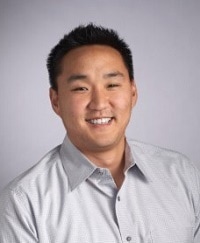 1. Scott Kim, President of Zocdoc
1. Scott Kim, President of Zocdoc
In today's digital age, Zocdoc leads the charge in simplifying the process of booking medical appointments. The New York-based medical care scheduling app which became a unicorn in 2015 is led by President, Scott Kim who's guided the company’s operations since 2018. During his tenure as the CEO of Bankrate.com Kim’s leadership didn't just shape overall strategy and company culture but also led to the successful sale of the New York-based consumer financial services company for $1.4 billion.
Since joining the booking service giant, Kim has improved strategic alignment, produced technology-driven results as well as guided profitable revenue growth. “The opportunity to make healthcare less frustrating is huge,” he said. “My focus is on making Zocdoc operationally excellent so that we can continue to focus on innovation for patients.” In his previous roles, as the interim CEO and COO of About.com, which is now dotdash, Kim was instrumental in the company's focus on technology, acquisition marketing, and data science. Combining his B.S. in Computer Science from Stanford University with his innovative streak, Kim has propelled every company he’s worked with into the future and at Zocdoc he’s been instrumental in the digital platform’s continued growth.
 2. Robert Brisco, CEO of Internet Brands
2. Robert Brisco, CEO of Internet Brands
Headquartered in El Segundo, California Internet Brands is a software services and online media organization with a focus on health, automotive, legal sectors, as well as home and travel. WebMD which is an Internet Brands Company is synonymous with health information and for those seeking answers online. At the helm of the company is CEO, Robert Brisco. Building the firm up from a startup into a tech giant, Internet Brands now serves 250,000 clients resulting in more than 250 million unique visitors per month.
“WebMD and Medscape [a WebMD property] are the market leaders in online health with unparalleled reach to consumers and healthcare professionals,” said Brisco. “Since its founding, WebMD has established itself as a trusted resource for health information. We look forward to delivering that resource to even more users, by leveraging our combined resources and presence in online healthcare to catalyze WebMD’s future growth.” There’s no doubt that Brisco's past roles in entertainment, as the president of Universal Studios Hollywood and Citywalk, and media, as the SVP at The Los Angeles Times culminated to inform his indisputable fortitude at Internet Brands— and we can’t wait to see what he’s going to do next.
 3. Jennifer Jacobucci, EVP Operations of Healthgrades
3. Jennifer Jacobucci, EVP Operations of Healthgrades
Operations and business development executive, Jennifer Jacobucci has more than 20 years of professional experience. However, it’s her unbridled passion that propels the Kansas native forward in all her professional pursuits. As the Executive Vice President of Operations at Healthgrades, the leading online resource for information about physicians and hospitals, Jacobucci has honed her client-focused operation teams and refined scalable processes across the company.
In 2010, as a stay at home mom, she was inspired to create children’s activewear, a niche but underserved market. Motivated by her own love of skiing, mountain biking, and trail running, Jacobucci realized when it came to dressing her children for these activities options were few and far between. Athletic clothing for children requires rigorous testing but Jacobucci, and her partner, Connie Shaner were up for the challenge. This tenacity and drive have informed every facet of her life, particularly as Vice President of Client Services at ECIN/Allscripts and at McKesson as an implementations manager and operational consultant. Today she lives in Colorado Springs with her family.
 4. James Park, CEO, President, and Co-Founder of Fitbit
4. James Park, CEO, President, and Co-Founder of Fitbit
Tech entrepreneur, James Park has played a pivotal role in the flourishing wearable-fitness technology market. As the CEO, President and co-founder of Fitbit, Park has revolutionized the sector by taking the humble pedometer to the next level. The Fitbit doesn’t just monitor metrics like total steps, heart rate, and quality of sleep but also encourages users to get more active. This year, Google acquired Fitbit for $2.1 billion and Park admitted he was excited to see what the company would accomplish alongside the tech giant.
“With Google’s resources and global platform, Fitbit will be able to accelerate innovation in the wearables category, scale faster, and make health even more accessible to everyone,” Park said. “I could not be more excited for what lies ahead.” His eagerness doesn’t just come from a desire to grow the business. In the mid-2000s, Park had gotten out of shape while working at tech startups and decided to do something about it. Rather than joining a gym, he and his co-founder, Eric Friedman who was Fascinated by how Nintendo Wii combined sensors with software joined forces. Together they created an affordable, lightweight tool with an ergonomic design. In 2007, Fitbit was born and the rest is history.
 5. Jini Kim, CEO of Nuna
5. Jini Kim, CEO of Nuna
San Francisco startup Nuna began by servicing corporations, but after founder and CEO Jini Kim was plucked by the Obama Administration to bail out the glitch-riddled Healthcare.gov initiative, she was inspired to expand. The passion behind Kim’s healthcare analytics company can be traced back to her family. It all started when her brother, Kimong, was diagnosed with autism at the age of 8. When he began suffering from monthly grand mal seizures, a then 9-year-old, Kim had to sit down with her Korean immigrant parents to help them complete Medicaid forms, as they struggled to keep up with medical bills.
“Our family would have gone bankrupt without Medicaid,” she said. “It saved us.” Today, Nuna helps millions of Americans with its radical utilization of Medicaid data. In her previous role at Google, she was a product manager on Google Health, but it’s at Nuna that she’s been able to realize her dream, one that is shared by many other Americans. Founded in 2010, Nuna has modernized and continues to create an easy-to-use platform to access Medicaid by applying technology and software methods to government health data.
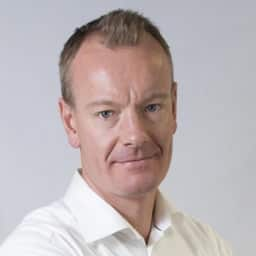 6. Christian Gormsen, CEO of Eargo
6. Christian Gormsen, CEO of Eargo
Christian Gormsen believes that hearing loss is a topic that doesn't receive the attention it deserves. And this position has informed the last two decades of the entrepreneur’s life. He started working with Eargo in 2013 when the Copenhagen entrepreneur was cornered by the venture capital arm of Danish pharmaceutical giant Novo Nordisk and asked to join a startup producing hearing aids. Skeptical at first, Gormsen quickly changed his tune when he saw the prototype made by Eargo’s co-founders, Daniel Shen, Florent Michel, and Raphael Michel.
Joining as CEO in 2016, he led the startup to its commercial launch in 2017 and now claims to have sold over 20,000 hearing aids since. Like many other popular digital healthcare startups, Eargo cuts out the middleman, thus lowering the cost of hearing aids and improving availability across marginalized groups and lower-income Americans. Headquartered in San Jose, this year Eargo has raised $135 million for their small and virtually invisible hearing aids, which arrive in a chargeable case. Designed for the modern world, Eargo is focused on destigmatizing hearing loss. “We can see that the product is really making a difference for users,” said Gormsen. “We have the opportunity to really create a leading brand in the consumer hearing health space.”
 7. Afton Vechery, CEO and Co-Founder of Modern Fertility
7. Afton Vechery, CEO and Co-Founder of Modern Fertility
Afton Vechery left her position as a product manager at the genomics and biotechnology company 23andMe to pioneer the democratization of fertility data. During her time at the genetics testing startup, the 29-year-old entrepreneur began thinking critically about whether women would respond to simple reproductive health tests. After avid research in 2016 Vechery left 23andMe to focus on her new venture, Modern Fertility.
Despite having a business idea for a test that would revolutionize the expensive and uncomfortable subject of fertility, Vechery was forced to meet with mostly hesitant male investors who weren't convinced of Modern Fertility’s viability. But when the $159 test racked up $70,000 in pre-orders within a month, the numbers told a different story. Today, the empowering women's health company benefits from Vechery's passion, leadership, and innovative thinking. As femtech is slated to be "the next big disruptor in the global healthcare market," it's a good time for Modern Fertility. “We see a world where every woman has the information she needs to make decisions about her fertility,” says Vechery. “For us today, that starts with routine testing. It is step one, but it is a big hill to climb.”
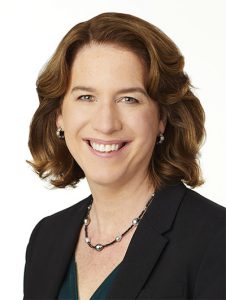 8. Margo Georgiadis, CEO of Ancestry
8. Margo Georgiadis, CEO of Ancestry
Appointed as President and CEO of Ancestry in 2018, Margo Georgiadis has been instrumental in the next chapter of the renowned genealogy testing company as it looks to expand into individualized medicine. Today, she’s built out a full health team with marketers, engineers, communications staff, and senior management, and has set out to lead Ancestry into its next phase. The odds are in Georgiadis’ favor. She has impressive leadership experience having held positions at the multinational manufacturing toy giant, Mattel, where she was CEO; at Google as the President of Americas and previously as the Vice President of Global Sales Operations; as the COO of Groupon; and as the EVP of US Card Services and CMO of Discover Financial Services. The innovative executive earned her BA in Economics and an MBA from Harvard.
As a woman in tech, Georgiadis has been a fervent champion of young girls seeking education and careers in STEM, advocating for organizations like Made with Code and Girls Who Code. She also co-led Women@Google during her time there. “In every workplace, that sense of transparency and accountability in the leadership makes employees feel more confident,” she says. Georgiadis makes a point to lead her team with a sense of humanity, which she claims is essential to the success of any company.
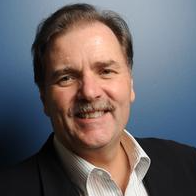 9. Kevin King, CEO and President of iRhythm
9. Kevin King, CEO and President of iRhythm
Kevin King joined as iRhythm Technologies’ Chief Executive Officer in 2012, bringing over three decades of experience in the IT and healthcare industries. iRhythm, a leading provider of diagnostic monitoring solutions, facilitates the early diagnosis and treatment of cardiac arrhythmia. Artificial intelligence is a prominent feature of iRhythm’s operations, a hallmark of the company King is particularly passionate about. As an advocate for AI, he claims it’s the answer to the healthcare sector’s problems.
“We see AI power ‘tools’ in 2020 allowing clinicians to improve process and operations, and enable clinical decision making in less time, with fewer resources,” said King. His predictions aren’t in vain. As the former CEO and Director of Affymetrix a technology innovator in the field of genetic analysis, President and Chief Executive Officer of Thomson Healthcare, an information services firm, as well as a previous senior executive at GE Healthcare, King knows a thing or two about the industry. With a B.A. in Economics and Biology from the University of Massachusetts and an M.B.A. from New Hampshire College, the digital healthcare innovator is primed for the future.
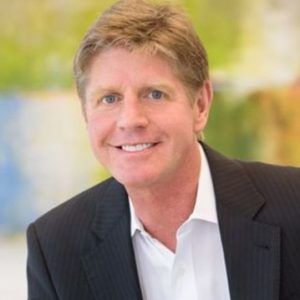 10. Joseph Hogan, CEO, President, and Director of Align Technology
10. Joseph Hogan, CEO, President, and Director of Align Technology
Since joining Align Technology in June 2015 as President, Chief Executive Officer, and Director, Joseph Hogan has proved his reputation as a leader with a penchant for growth. With extensive experience across multiple industries, including healthcare, technology, and industrial automation, Hogan has served as CEO of ABB, a $40 billion power and automation company based in Zurich, Switzerland, where he increased revenue by 25%. His 25 years spent at General Electric, including a role as CEO where he encouraged market portfolio and geographic expansion, doubled revenue.
Hogan always delivers on his promises of growth, making him one of the most sought after thought leaders in the industry. With Hogan at the helm of Align's Invisalign system, the orthodontic giant managed a 27.6% return on its stock in 2019. Align continues to see growth around the globe, and while Hogan concedes that it hasn't won over the market in China, the company forecasts a 30% jump in the market in the near future. As a leader, Hogan’s extensive experience and propensity for results is a winning formula.
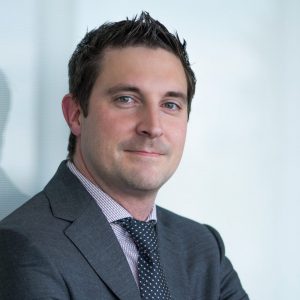 11. Mark Zekulin, CEO of Canopy Growth
11. Mark Zekulin, CEO of Canopy Growth
Canadian cannabis company, Canopy Growth announced Mark Zekulin was stepping up as Chief Executive Officer this year. While the cannabis giant has experienced a shakeup over the past few months, it’s promised investors that it’s playing a long game with the billions it has invested in infrastructure as well as research and development over the past five years. A key driver of Canopy’s vision, Zekulin has been touted as the leader of the company’s global expansion strategy.
In fact, the cannabis and hemp startup has spent the last year acquiring operations across the globe, funding medical cannabis research, collaborating with Martha Stewart on pet products, and has invested billions into the development of cannabis beverages, edibles, and vaping products. Fifteen years ago, the University of Ottawa law graduate probably couldn't have imagined where he'd be today. After a series of jobs at various law firms and a stint supporting a political campaign, Zekulin began working with Bruce Linton, one of the co-founders of Tweed, which would eventually go on to be called Canopy. Today, the cannabis company is renowned worldwide.
 12. Kevin Banderk, CEO (former) of eSight
12. Kevin Banderk, CEO (former) of eSight
Earlier this year, Kevin Banderk joined leading vision-platform organization, eSight as Chief Executive Officer, leaving behind fifteen years at Telus, a Canadian national telecommunications company. Banderk’s arrival at the company coincides with the new executive team raising $10 million in a debenture funding round, which it will use to advance new technology as well as propel geographical expansion. “I’m excited to join a Canadian startup that has always been driven by positive change,” said Banderk, “and I look forward to helping eSight make a genuine difference in the lives of visually impaired people worldwide.”
Since the electronic glasses company’s launch in 2017, the firm has experienced substantial growth as it has expanded its customer base across 45 countries worldwide. eSight’s product, a pair of smart glasses that cost $12,500 has also recently dropped in price by 40% off the back of its success. Banderk, who is renowned for launching, developing and managing the award-winning Koodo Mobile brand, which he built into the fastest-growing profitable wireless brand in Canada is the kind of innovative thought leader set to launch eSight into a new decade of success.
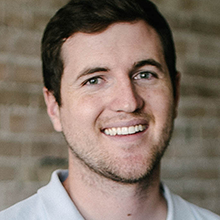 13. Kurt Workman, CEO of Owlet Baby Care
13. Kurt Workman, CEO of Owlet Baby Care
At the age of 30, Kurt Workman’s company by parents, for parents, is already being touted as the “next billion-dollar startup.” Owlet Baby Care’s product range includes the Smart Sock baby monitor and the Owlet Band pregnancy monitor, empowering parents to take control of their babies’ health. Launched in 2013, the idea for Owlet came about after Workman's wife discovered she had a congenital heart condition, spurring him to create something to detect similar conditions in their unborn child. Together, they discovered the technology to track heart rate and blood oxygen concentration in infants was developed in the 70s, but with little innovation since.
So, he developed existing tests into a wireless piece of tech that fit it into a sock. The relief and peace of mind provided by Owlet has proven to be worth millions, but it’s also saved lives; according to thousands of customer feedback notes Workman has received. “When you read those stories, all the manufacturing issues, all the failures, all your own personal issues, don’t matter,” Workman said. The Utah-based company, which is run by the chemical engineering graduate has had its own obstacles. However, Workman has risen above this, prioritizing passion, health, and well-being, something that has and will continue to resound with new parents across the globe.
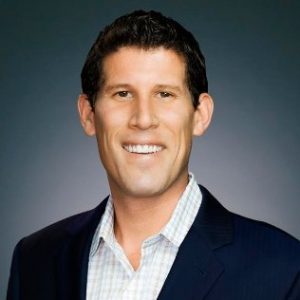 14. Geoff Gross, CEO and Founder of Medical Guardian
14. Geoff Gross, CEO and Founder of Medical Guardian
Geoff Gross’s passion for the healthcare industry was inspired by family. After his grandmother suffered from several falls while living alone, the tech entrepreneur started Medical Guardian out of his apartment in 2005. Today, as the founder and CEO of the leading provider of Personal Emergency Response Systems (PERS) Gross has leveraged 14 years of experience and become one of the most celebrated leaders in the field.
Medical Guardian protects millions of senior people across the country and has been fundamental to a generation reluctant to embrace technology. This is something Gross has been aware of but by creating simple, easy-to-use devices with no-frill features, like automatic fall detection technology he’s empowered customers at home and everywhere they go. But it isn't just the company’s innovative products that make Gross a celebrated CEO. Commended for small but meaningful gestures, like learning everyone's names, taking the time to have lunch with new hires, and bringing genuine care to creating a family-oriented culture to the company, Gross always goes above and beyond the call of duty.
 15. Eric Kinariwala, CEO and Founder of Capsule
15. Eric Kinariwala, CEO and Founder of Capsule
Online New York City holistic digital pharmacy, Capsule is working to rebuild the traditional pharmacy experience from the inside out, led by CEO and founder Eric Kinariwala. Partnering with hospital physicians and allowing customers to easily view prices, get medications delivered within two hours, easily manage copays and refills, Capsule looks to take the tedium out of the day-to-day pharmacy experience.
“Despite being the second-largest category of retail in the U.S. and the highest frequency interaction consumers have in the healthcare system, the pharmacy has remained largely unchanged for over a century,” said Kinariwala. “The past 18 months have laid the groundwork for substantial and much-needed change to the industry to better serve consumers.” In September, the Manhattan-based company announced a $200 million investment, enabling nationwide delivery. Capsule’s online drug fulfillment platform is part of a growing trend in tech, known as telemedicine. And now the company’s total backing stands at $270 million, it’s beginning to look like a formidable foe for competitors like Amazon-owned PillPack.
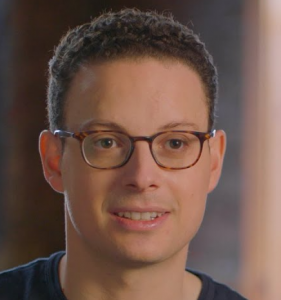 16. Geoffrey Chaiken, CEO and Co-Founder of Blink Health
16. Geoffrey Chaiken, CEO and Co-Founder of Blink Health
There are currently no foreseeable solutions in sight set to unburden low-income Americans from the expensive healthcare system. For that reason, tech companies are taking it upon themselves to make a difference. This includes startup, Blink Health, the burgeoning app which offers users discounted prescription medications. Led by co-founder and CEO, Geoffrey Chaiken, Blink hopes to improve the process of using drug discount coupons. Accessible on any smartphone, the startup claims to be the only service with the lowest prices backed by a price match guarantee.
Recently, Chaiken opened a headquarters in New York and announced new hires from Amazon, Facebook, and Microsoft. Prior to co-founding Blink, Geoffrey established specialty pharmaceutical company, Marinus Pharmaceuticals, which developed innovative treatments for serious epilepsy. As a former investor at Brave Warrior Advisors, Chaiken has led the way for the firm's success through technology and pharmaceutical supply chains. “At Blink, we’re not going to wait for the government to solve this problem,” he says. “Already, we’ve been able to impact prices, with 4,000 medications priced under $10 using Blink.”
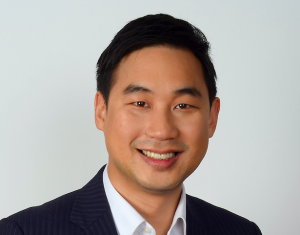 17. Saeju Jeong, CEO and Co-Founder of Noom
17. Saeju Jeong, CEO and Co-Founder of Noom
Mobile health coaching app, Noom strives for greatness in a saturated health and wellness market. CEO, Saeju Jeong who co-founded the company with his best friend Artem Patakov created the most downloaded health app in the world on both iOS and Android. The first virtual health provider and mobile diabetes prevention program certified by the CDC, Noom combines artificial intelligence, mobile tech, and psychology to create an all-encompassing experience for users looking for a compassionate approach.
Taking advantage of the burgeoning gig economy, Noom hires full-time coaches with full benefit packages across the U.S. “Noom is creating jobs in cities and states that are typically overlooked by tech companies,” says Jeong. “We are hiring a ton of great people, mostly women, who love our mission and love helping people.” This year, the company announced it had received an investment from Serena Ventures, led by tennis superstar, Serena Williams giving Noom access to the firm's network and portfolio of companies. “I’m a true believer that everyone should have easy access to a healthier life, which is why I decided to invest in Noom,” said Williams.
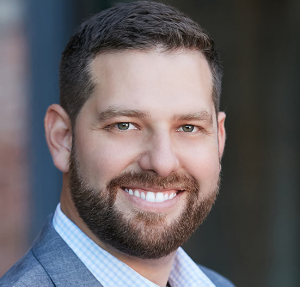 18. Iyah Romm, CEO and Co-Founder of Cityblock Health
18. Iyah Romm, CEO and Co-Founder of Cityblock Health
Based in New York City, Cityblock Health which is led by CEO and co-founder, Iyah Romm helps support underserved communities by giving Medicaid and low-income Medicare beneficiaries access to health services. Prior to this, Romm held positions with Commonwealth Care Alliance and the Massachusetts Department of Public Health. His past work has culminated “to provide sustainable, cost-effective services to populations with greatest needs,” as well as rebuilding trust in a system many patients have lost faith in.
The Alphabet spinout, which focuses on health tech tools is hoping to bring what is predominantly available to upper-middle-class citizens to the rest of America. Through an initiative called Commons, the company connects empathetic community health partners with marginalized patients. The system is also designed to take into account different cultural norms and help teams look at the patient holistically. Romm's fundamental re-thinking of technological services, payment models, and the healthcare system looks at the root of the problem, hoping to begin work on fixing a broken system from the inside out.
 19. Selina Thurer, SVP Personal Health North America of Philips
19. Selina Thurer, SVP Personal Health North America of Philips
Selina Thurer is pivotal in leading Philips’ global team towards new developments as well as marketing pioneering discoveries. Global giant Phillips has long been at the forefront of meaningful innovations in healthcare, consumer lifestyle, and lighting, while Thurer focuses on finding new ways to help people live better lives through healthier food and drink choices. Joining Philips in 2000, Thurer has commanded a series of positions, including global brand innovation manager, senior director consumer marketing management for television, and general manager of Asia Pacific.
Responsible for growing the consumer business across Canada and the U.S., her world view has been an asset to the international company, providing valuable insight on diverse cultures and teams from her time spent around the globe. As a board member on The Heart For Suma Foundation, a principal sponsor and advisor of an orphanage in Indonesia, Thurer's experience also spans philanthropical ventures, including her prior role as a board member of Hollandse School Singapore.
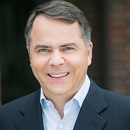 20. Thibaut Mongon, EVP, Worldwide Chairman of Consumer Health of Johnson & Johnson
20. Thibaut Mongon, EVP, Worldwide Chairman of Consumer Health of Johnson & Johnson
This year Johnson & Johnson appointed Thibaut Mongon as its new Executive Vice President and Worldwide Chairman of Consumer Health. Having spent 19 years at the company, most recently as leader of J&J Consumer Asia-Pacific, Mongon has played an instrumental role in the acceleration of revenue growth by creating a vibrant pipeline of consumer-centric innovations. After joining J&J in 2000 as the Director of Marketing for the Vision Care group in France, he eventually held roles as Country Manager of France, Belgium and North Africa, and Managing Director of Latin America.
This year, as J&J celebrates the 75 year anniversary of its IPO, Mongon is hoping to find new ways to help people live healthier lives every day by offering trusted products that aid in the prevention of health problems later in life. With a bevy of accomplishments under his belt, Mongon most recently led his team in bringing natural health and wellness brand Zarbee’s Naturals into the fold, as he’s continued to be at the helm of product innovation for renowned brands like Zyrtec and Neutrogena.
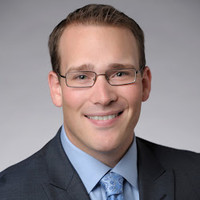 21. Timothy Peck, CEO and Co-Founder of Call9
21. Timothy Peck, CEO and Co-Founder of Call9
In June of this year, Call9 CEO Dr. Timothy Peck announced that the medical equipment and video conference startup aimed at nursing home residents was shutting down. Despite this, Peck continues to operate Call9 Medical, which employs doctors and provides medical care. Call9, which was built on an innovative model where the proprietary technology platform connected physicians to on-site first responders helped avoid unnecessary transports to the hospital thus making emergency room visits more efficient.
Preceding his time as a co-founder of Call9, Peck held a faculty position at Harvard Medical School and was the Chief Resident in the Emergency Department at Beth Israel Deaconess/Harvard. Earning his MD from New York University, Peck's interest in digital healthcare comes from experiencing critical illness himself. But what makes Peck brilliant is his unquenchable thirst for knowledge. While creating Call9, he was determined to service nursing home and rehab centers, though realized he knew nothing about the former. He decided to change that by living at Central Island Healthcare, a nursing home in Long Island for three months. There he slept on a mattress in a conference room to understand the ins and outs of the facility.
 22. John Renaldi, CEO and Co-Founder of Jiobit
22. John Renaldi, CEO and Co-Founder of Jiobit
Jiobit was started in 2015, when co-founder and CEO, John Renaldi lost his child in a crowded area. Vowing to never go through that experience again, he created a trustworthy portable tracking device that wouldn't just give him peace of mind, but also give parents in over 120 countries a foolproof way of keeping their children safe. The award-winning, location-aware product features a host of encryption and security technologies, making Jiobit a trusted name with clients in the federal government, law enforcement, as well as thousands of families.
This year, the Chicago-based hardware startup announced it was looking to create tech for the U.S Air Force that involved tracking devices run from a secure, cloud-based platform. “That’s a super exciting part of our business that is going to grow tremendously over the next 24 months,” said Renaldi. This move to B2B applications signals a bright future for the company, claiming a six-fold increase in revenue over the past year. Renaldi is a father of two and a self-taught software developer with an innate passion for technology and multiple patents on file.
 23. Anton Kittelberger, CEO of mySugr
23. Anton Kittelberger, CEO of mySugr
Austrian diabetes app startup, mySugr began in 2012 when its co-founders, two of whom had type-1 diabetes wanted a digital tool to enable users to monitor blood sugar levels via a smartphone app. Today, Anton Kittelberger is Chief Executive Officer at mySugr, following roles as Chief Operating Officer and Product Manager at the company. As the force behind the business model of the revolutionary app, Kittelberger is an advocate for the platform, which is available in a cost-free version as well as the paid version, which can be purchased for as little as 2.99 Euro per month.
While the app has struck a chord with users, it’s also allowed diabetes sufferers to use this data to inform their physicians on their day-to-day lives. In 2017, Kittelberger and the team closed several rounds of financing deals with big pharma and medical device companies, ultimately exiting the company to Roche, which was touted as one of the biggest digital health acquisitions in Europe. Prior to joining mySugr, Kittelberger was a Management Consultant at Detecon International GmbH.
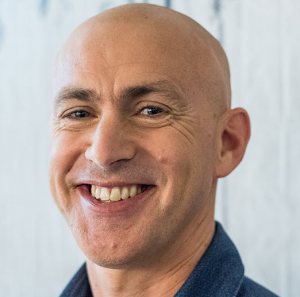 24. Andy Puddicombe, Co-Founder of Headspace
24. Andy Puddicombe, Co-Founder of Headspace
Co-founder of Headspace, Andy Puddicombe launched the meditation app in 2010 with his business partner, Richard Pierson, which has since amassed 54 million users in over 190 countries. The now-46-year-old Briton is a former monk whose hope is to encourage a more communicative, happier world. Providing sessions of guided meditations to registered users and promoting mindfulness, Headspace is one of the most successful apps in the world, and especially popular with men.
“Men don’t want to talk to anyone at work,” says Puddicombe. “They don’t want to go to the doctor or a therapist. So they think [Headspace] is good for them. Also, they don’t have to discuss it.” It’s clinically proven that using Headspace for 30 days can reduce stress by a third in only ten days, while negative emotions can decrease by 28%, and if used for over a month focus can be improved by 14%. Today, the mindfulness startup has now secured more than $75m of external funding while Puddicombe and Pierson still own a majority stake.
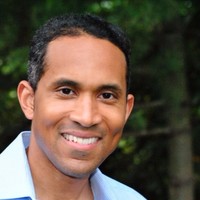 25. Greg Coleman, CEO and Co-Founder of Sworkit
25. Greg Coleman, CEO and Co-Founder of Sworkit
In 2010, Greg Coleman and Benjamin Young joined forces and co-founded the exercise app, Sworkit. The app, which allows users to select the type of workout and the time they want to spend exercising before being guided through a series of timed exercises, integrates with MyFitnessPal, Apple HealthKit, and Google Fit. Determined to build the app into a globally recognized brand, Coleman brought a pitch along to ABC’s television hit Shark Tank where in 2016 they raised $1.5 million in funding from Dallas Mavericks owner, Mark Cuban.
The move might have revealed Coleman to be a bit of a maverick himself, but today Sworkit boasts over 35 million downloads and more than 3 million active monthly users, proving that their unorthodox tactics work. With over 18 years of experience in management and operations, Coleman has worked as deputy commander of a seven-department U.S. Air Force operations organization where he managed the utilization of over $233M in aircraft inventory and 80 flight crew members. Coleman earned his Masters of Business Administration from The Wharton School with a dual major in finance and entrepreneurial management as well as a B.S. in Electrical Engineering from the United States Air Force Academy.























